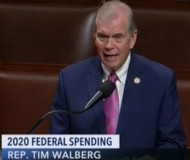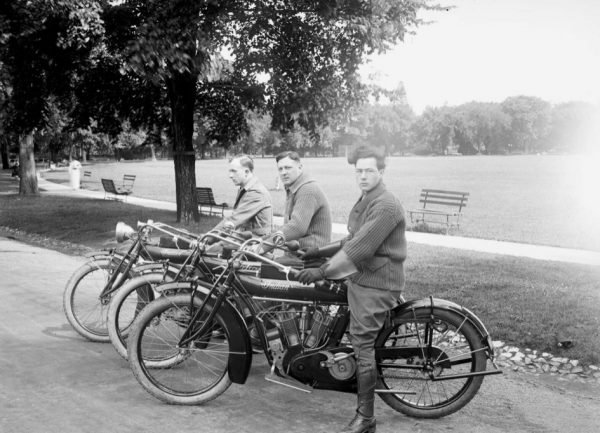US House Moves To Limit Car Seizures
US House of Representatives votes unanimously to block local police from seizing cars and other property under federal rules.

The US House of Representatives decided last week to limit the federal government’s ability to work with local law enforcement to take cars away from motorists who have not been convicted of any crime. By a voice vote, lawmakers adopted an amendment to the Justice Department funding bill restoring a prohibition on “adoptive seizures” that allow local law enforcement to turn cases over to federal agents who operate with few restrictions on confiscation.
“These forfeiture options provide a loophole that helps local law enforcement evade stricter state laws — like my own in Michigan — governing civil asset forfeiture by seizing property and transferring it to federal authorities in exchange for up to 80 percent of forfeiture proceeds,” Representative Tim Walberg (R-Michigan) explained on the House floor. “For many years, I have worked in a bipartisan way to shine a light on civil asset forfeiture abuses.”
Walberg also introduced a more comprehensive civil asset forfeiture reform bill called the Fair Act, which has twelve Democratic and seven Republican cosponsors. Despite the bipartisan support, the current ideological split between the House and Senate means the only sure-fire way to pass legislation is to add it to the “must pass” end-of-year spending legislation as Walberg did last week. A coalition of conservative groups like Campaign for Liberty and the Heritage Foundation have joined with liberal groups like the American Civil Liberties Union (ACLU) and the NAACP along with non-partisan groups like the National Motorists Association to urge final passage of the funding bill with Walberg’s amendment.
“Federal law enforcement can confiscate property it seizes from individuals and businesses without ever filing criminal charges,” the coalition letter explained. “Those property owners must then navigate a legal system that is stacked against them if they are to have a chance to get their property back… Even worse, the agency taking the property typically gets to keep the proceeds, which poses an obvious financial incentive to engage in this practice.”
On July 19, 2017, then-attorney general Jeff Sessions reversed a ban on adoptive seizures that was put in place in the prior administration. Over the last five years, the Justice Department has seized 11,739 automobiles.
“Due process means the government can’t take your body, your rights, or your property without a fair process, the presumption of innocence, and the opportunity to be heard,” Representatives Jamie Raskin (D-Maryland), a Fair Act cosponsor, explained. “But the lawless seizure and ‘forfeiture’ of people’s private property is now standard operating procedure in far too many police jurisdictions across the country.”
The House is expected to pass the underlying Justice Department funding bill by the end of the week.
There is still much work to be done to pass comprehensive forfeiture reform at the federal and state levels. We will keep you apprised every step of the way.
In late April, U.S. Representative Tim Walberg of Michigan introduced the Fifth Amendment Integrity Restoration (FAIR) Act of 2019. The proposed legislation, which would institute much of the reform for which the NMA has been lobbying, has strong bipartisan support. The FAIR Act will hold the government to a much higher standard of “clear and convincing evidence . . . that there was a substantial connection between the property and the offense” before that property could be seized. Current seizure standards allow agencies to confiscate property from a person or persons who have not been convicted, or even charged, with a crime.
Why is this important to motorists? Because those on the road have become primary targets of asset seizures in recent years. The Washington Post reported in 2014 that in the 13 years of 2001 through 2013, the government conducted nearly 62,000 seizures on the nation’s highways, resulting in the confiscation of property worth more than $2.5 billion.
That is why civil asset forfeiture reform, along with the prohibition of federal funding for state-based traffic ticket quota programs, is the focus of current NMA lobbying efforts in the halls of Congress.
Rep. Walberg has just proposed a bipartisan amendment, ordered as Amendment #97, to H.R. 3055 which is a comprehensive appropriations bill that includes FY 2020 funding for the Department of Justice. The Walberg amendment will prohibit the DOJ from using any money to undertake specific actions related to state or local civil asset forfeiture activities. This will make it harder for local law enforcement to use the federal government to bypass state laws when pursuing asset seizures.
This isn’t the final solution to reform, but it is an important step along the way. According to the Majority Leader’s office, the House will begin debate on H.R. 3055 later today. While the Walberg amendment could be debated as early as this evening, there will not be any recorded votes on the amendments to H.R. 3055 until tomorrow — Thursday June 20th — at the earliest.
The NMA has joined the Institute for Justice and the ACLU in endorsing the Walberg amendment to all members of the U.S. House. of Representatives. Because this is fast-moving, please call or email your representative today or tomorrow expressing your support of Amendment #97 to H.R. 3055.
We will keep you informed of the progress. If you haven’t already donated to the NMA’s 2019 Legislative Fundraising Campaign, please consider doing so now. The money raised will help us keep up the lobbying pressure for this reform as well as pushing through the NMA’s DETER Act which will stop the National Highway Trafic Safety Administration from funding several hundred million dollars worth of high-visibility enforcement actions every year based largely on ticketing activity.
Donations to the NMA can be made online or by calling us toll-free at 800-882-2785 weekdays from 9 am to 5 pm Central.
Thank you.
Gary Biller
President
